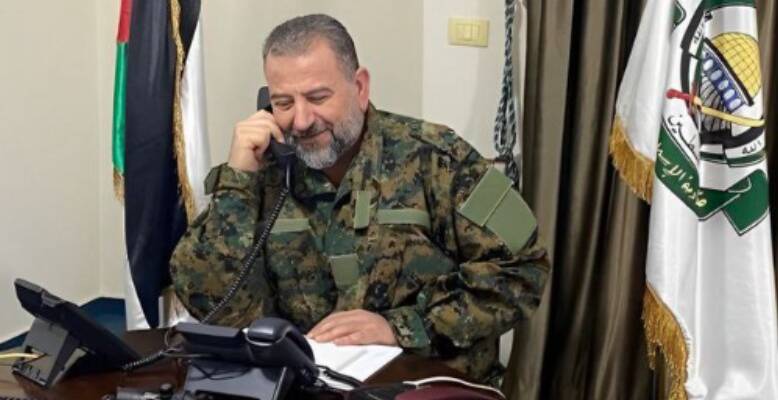He was first recruited into Hamas in 1987 while studying Sharia law at the University of Hebron.
By Baruch Yedid, TPS
The significance of the killing of Hamas deputy Saleh Arouri cannot be overstated. He has been a part of Hamas ever since its founding 36 years ago and was regarded as the terror group’s master strategist.
He was in charge of all Hamas terror activities in Judea and Samaria. He made the decision to take Hamas squarely into Iran’s orbit. He was also a key figure in re-establishing Hamas ties with Damascus, which ruptured in 2012 during the Syrian Civil War. His most recent project was building up Hamas’s capabilities in Lebanon.
Lebanese media reports said he was working to expand joint battalions of Hamas, Palestinian Islamic Jihad and Fatah in Samaria, but his most recent project was building up Hamas’s capabilities in Lebanon. Hamas rocket fire from Lebanon was carried overseen by Arouri’s assistant, Samir Findi, who was killed with Arouri. Another five senior Hamas figures were also killed in what is attributed as an Israeli air strike at the Hamas headquarters in southern Beirut’s Dahiya district, a Hezbollah stronghold.
Israeli officials have not commented. Without mentioning Arouri by name, Israel Defense Forces Spokesman Rear Adm. Daniel Hagari said on Tuesday night that the military was in a “very high level of readiness — in all arenas, in defense and offense.”
He added, “The most important thing to say tonight is that we are focused and remain focused on fighting Hamas.”
Arouri’s journey through the ranks of Hamas is noteworthy. Born in the village of Arura, he has been committed to Hamas from a young age, engaging in Islamic activities and assuming leadership roles. He was first recruited into Hamas in 1987 while studying Sharia law at the University of Hebron. He quickly began organizing its first terror cells in Judea and Samaria.
He was imprisoned in Israel for 18 years over several stints before being deported to Syria in 2010.
Arouri was also a major figure in the Gilad Shalit prisoner exchange of 2011 when Hamas freed captive Israeli soldier Gilad Shalit for 1,027 Palestinian and Arab-Israeli security prisoners, making sure Hamas members were prioritized.
“He chose them one by one and assigned them to the terror groups of Hamas,” a senior Palestinian official told the Tazpit Press Service several months ago.
It’s widely believed that from Turkey, he masterminded the kidnapping of three Israeli teenagers –Eyal Yifrach, Gilad Shaar and Naftali Fraenkel — from a hitchhiking spot in Gush Etziyon south of Jerusalem. The abduction and murder of the teens escalated into the 2014 Gaza War.
Arouri eventually left Turkey — presumably forced out — around 2022 as Israeli-Turkish ties thawed.
Many Palestinians believed Hezbollah’s arsenal of rockets — reportedly 150,000 — would sufficiently deter an Israeli attack on Arouri in Lebanon. Hezbollah chief Hassan Nasrallah had vowed to retaliate for such a strike. But Hezbollah’s failure to avenge previous assassinations and widespread Lebanese opposition to war hamper Nasrallah’s ability to maneuver.
